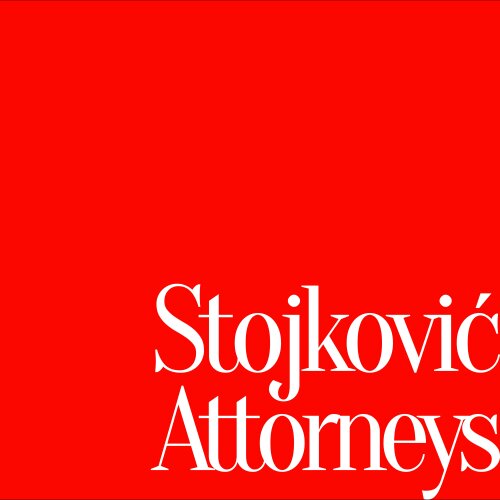Best Reinsurance Lawyers in Belgrade
Share your needs with us, get contacted by law firms.
Free. Takes 2 min.
List of the best lawyers in Belgrade, Serbia
About Reinsurance Law in Belgrade, Serbia
Reinsurance law in Belgrade, Serbia, is a specialized field focusing on the legal aspects of reinsurance contracts and practices. Reinsurance involves a contractual agreement where an insurer transfers portions of risk portfolios to other parties to reduce the likelihood of paying a large obligation from an insurance claim. Serbia's legal framework for reinsurance is based on the national insurance legislation, which aligns with European Union standards as part of Serbia’s EU accession efforts. This legal environment ensures market stability, consumer protection, and compliance with international standards, making it crucial for insurers and reinsurers operating in Belgrade to understand local laws and regulations.
Why You May Need a Lawyer
There are several scenarios where engaging a lawyer experienced in reinsurance law can be beneficial:
- Contract Negotiation and Drafting: Crafting and negotiating reinsurance treaties and contracts demands meticulous attention to legal detail and business acumen.
- Claims Disputes: Legal assistance may be required to navigate complex disputes over claims between insurers and reinsurers.
- Regulatory Compliance: Adhering to Serbia's regulatory requirements is essential for both local and foreign insurance entities operating within the jurisdiction.
- Legal Opinions: A lawyer can provide formal legal opinions to clarify ambiguities in treaties or coverage terms, thereby reducing future disputes.
- Risk Management: Reinsurance lawyers offer insights into prudent risk management strategies aligning with legal mandates.
Local Laws Overview
The reinsurance sector in Belgrade tracks Serbia’s broader insurance regulatory framework, primarily governed by the Insurance Law. Key components include:
- Licensing: Reinsurers must obtain proper licensing to operate in Serbia, governed by the National Bank of Serbia (NBS).
- Solvency Requirements: Reinsurers must adhere to prescribed solvency margins and reserves to ensure financial stability.
- Reporting Obligations: Regular reporting to regulatory bodies on financial health and risk exposure is mandatory.
- Consumer Protection: Frameworks are in place to protect the interests of policyholders and beneficiaries.
- Cross-Border Regulations: For international reinsurance agreements, Serbian law requires compliance with both local and international regulations.
Frequently Asked Questions
What is reinsurance?
Reinsurance is a practice where an insurance provider transfers a portion of its risk portfolio to a third-party financial firm, known as a reinsurer, to mitigate potential large-scale claims.
Why is reinsurance needed?
Reinsurance is essential to limit financial liabilities for insurers, providing the capacity to undertake more diverse and larger risks and enhancing risk management.
Are there specific regulatory bodies governing reinsurance in Serbia?
Yes, the National Bank of Serbia (NBS) is the key regulator overseeing insurance and reinsurance activities, ensuring compliance and stability.
What are the primary legal challenges in reinsurance in Serbia?
Common challenges include navigating regulatory compliance, resolving cross-border transaction disputes, and managing contract ambiguities.
Can foreign insurers operate in Serbia?
Yes, foreign insurers can operate in Serbia but must comply with local regulations and often require collaboration with a domestically licensed entity.
How are reinsurance disputes resolved?
Disputes may be resolved through arbitration or litigation, depending on the contract terms. Some agreements specify arbitration to expedite resolution.
What legal documents are crucial for reinsurance agreements?
Key documents include reinsurance treaties, bordereaux (detailed lists of risks covered), and endorsements specifying terms and conditions.
What happens if a reinsurer defaults?
If a reinsurer defaults, the insurer may need to seek alternative reinsurance coverage or absorb the risks originally transferred.
What role does local law play in international reinsurance treaties?
Local law may dictate the enforceability of specific treaty terms and require adherence to national guidelines even for international arrangements.
Are there particular legal standards for solvency in reinsurance?
Yes, reinsurers must meet specific solvency margins as stipulated by the NBS to ensure they can fulfill financial commitments.
Additional Resources
For those seeking further insights or needing to address specific concerns in reinsurance law, several resources can be helpful:
- National Bank of Serbia (NBS): The NBS provides regulatory guidelines and financial reports for the insurance sector, including reinsurance.
- Serbian Chamber of Commerce: Offers resources and networking opportunities for businesses operating within the insurance industry.
- Local Law Firms: Many law firms in Belgrade specialize in insurance and reinsurance law, providing expert legal advice and services.
- European Union Directives: As Serbia is aligning its regulations with EU standards, EU directives on insurance and reinsurance are relevant.
Next Steps
If you require legal assistance in the area of reinsurance, consider the following steps:
- Research: Gain a basic understanding of the reinsurance landscape and existing agreements within your company or organization.
- Consultation: Schedule a consultation with a law firm experienced in reinsurance law to discuss your specific needs and challenges.
- Compliance Review: Conduct a compliance review to ensure adherence to national and international reinsurance laws.
- Document Preparation: Work with your legal advisor to draft or revise reinsurance agreements and necessary documentation.
- Continuous Monitoring: Establish a process for continuous monitoring of regulatory changes and potential impacts on your business operations.
Lawzana helps you find the best lawyers and law firms in Belgrade through a curated and pre-screened list of qualified legal professionals. Our platform offers rankings and detailed profiles of attorneys and law firms, allowing you to compare based on practice areas, including Reinsurance, experience, and client feedback.
Each profile includes a description of the firm's areas of practice, client reviews, team members and partners, year of establishment, spoken languages, office locations, contact information, social media presence, and any published articles or resources. Most firms on our platform speak English and are experienced in both local and international legal matters.
Get a quote from top-rated law firms in Belgrade, Serbia — quickly, securely, and without unnecessary hassle.
Disclaimer:
The information provided on this page is for general informational purposes only and does not constitute legal advice. While we strive to ensure the accuracy and relevance of the content, legal information may change over time, and interpretations of the law can vary. You should always consult with a qualified legal professional for advice specific to your situation.
We disclaim all liability for actions taken or not taken based on the content of this page. If you believe any information is incorrect or outdated, please contact us, and we will review and update it where appropriate.












